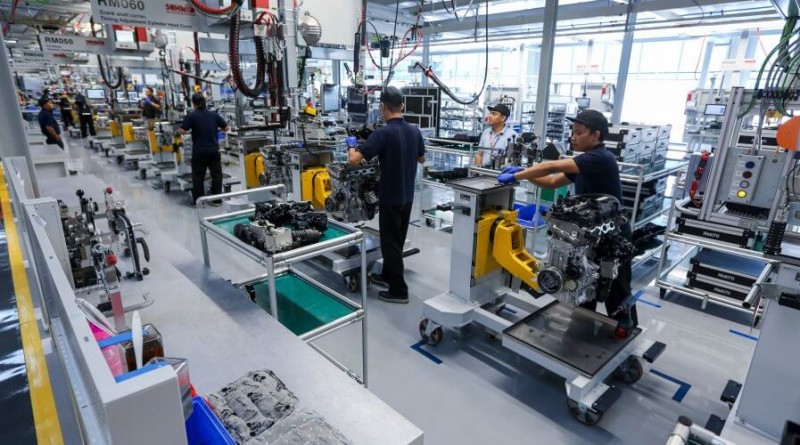
Image credit: Tech Wire Asia
The arrival of Industry 4.0 has brought many rapid technological advancements and new possibilities. On Malaysian shores, the phenomenon is expected to accelerate the growth of the manufacturing sector. However, the harsh reality is that the vast majority of our manufacturing is still at industry 2.5 at best.
Manufacturing is being transformed by digital technologies and rising volumes of data, which the entire sector needs to think and respond to differently.
Episode 23 of the Top In Tech Series: Smart Manufacturing in Malaysia - Reality Check sought to gain insights on how smart manufacturing digitises businesses and accelerates the country’s manufacturing sector even further. Hosted by Karamjit Singh, the guest panellists were Barry Leung, General Manager, SmartMore International, Rejab Sulaiman, Vice President, Products & Innovation, TM ONE and Dr Yeong Che Fai, Chairman, DF Automation & Robotics.
Malaysia’s manufacturing industry today
Rejab pointed out that many small and medium-sized enterprises (SMEs) in Malaysia are involved in manufacturing. However, what is clear is that digital adoption in the SME sector is still low. There are many improvements that need to be done for the country’s manufacturing sector before moving into Industry 4.0.
According to Barry, Malaysia’s technology infrastructure is advanced and mature. Nevertheless, there is a significant gap in adoption.
From sourcing, procurement, processing, and manufacturing, to distribution, warehousing, customer service, and sales, smart manufacturing can help you to improve efficiency, increase throughput, reduce inventory, view processes, and address production bottlenecks in real-time.
Today’s top 3 business priorities are to improve their business resiliency, reduce uncertainty and adopt ways to get better operational excellence in manufacturing. Regardless of any economic slowdown and supply-chain disruptions resulting from Covid-19, now is the time for businesses to consider smart-manufacturing initiatives to stay competitive.
“For now, the state of the industrial revolution of the manufacturing sector in Malaysia is between Industry 2.0 and 3.0. This is because there are still many people who are not aware of how digitalisation can streamline their businesses. 80% of businesses in Malaysia are still resistant to enter smart manufacturing because they are either intimidated by the financial or technical barriers,” said Yeong.
Steps to adopt AI in manufacturing
“When we talk about smart manufacturing, it is not all about robotics. It is also about streamlining the process in your factory. You are able to connect IoT sensors to your business. The goal of these sensor networks is to improve efficiency by providing detailed data on all aspects of the plant’s operations,” said Rejab.
Barry noted that, for manufacturers, AI promises to be a game-changer at every level of the value chain. In fact, the AI transformation in manufacturing is so profound that it’s already termed “Industry 4.0”, to denote the revolutionary essence of the connection of physical industrial assets with digital insights.
There are 3 steps to adopt AI in manufacturing which is to standardise the process, optimization and finally is to focus on the system and the strategies implemented. For businesses interested in smart manufacturing the good news is that they do not have to transition factories in one big leap. Small steps often lead to big wins.
Key Takeaways
“Smart Manufacturing may be a buzzword, but the technologies involved are driving transformational change in manufacturing companies in all sectors,”concluded Barry.
“Smart manufacturing is a continuous journey. The stakes are high to evolve production processes using advanced technologies and technology-savvy talent,”added Yeong.Adding to Yeong’s conclusion, Rejab predicts that companies that take a strategic approach and continuously improve their operations with new smart factory initiatives will be the ones “best placed to respond to the needs of the market today and in the future.”
Source: https://www.digitalnewsasia.com/business/top-tech-smart-manufacturing-malaysia-still-nascent-stage

